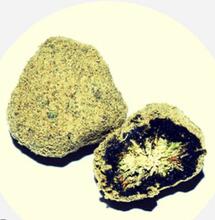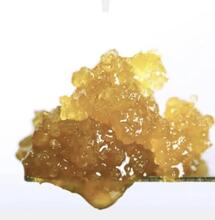THC and THCa, what's the difference?

THC is the most well-known cannabinoid for obvious reasons, namely its psychoactive properties. However, not as many people know about THCa .
What is THC?
THC stands for tetrahydrocannabinol. It is the cannabinoid that creates the “high” feeling when we use cannabis. There are hundreds of other active substances and cannabinoids in cannabis; however, when purchasing cannabis products, users tend to concentrate on THC levels.
What is THCa?
Tetrahydrocannabinol acid (THCa) is the non-psychotropic cannabinoid in raw and live cannabis. All cannabinoids originate from cannabigerol acid (CBGA), the “mother of all cannabinoids.” However, as the cannabis plant grows, it produces enzymes which are responsible for converting CBGA into other cannabinoids, including:
- Cannabidiolic acid (CBDA)
- Tetrahydrocannabinol acid (THCA)
- Cannabichromenic acid (CBCA)
By exposing THCa to heat, THC is created. There would be no THC without THCa, which explains why you won’t feel high just by chewing on raw cannabis leaves.
Decarboxylation can occur through the exposure of raw cannabis to direct sunlight, increasing ambient temperatures, or typically by exposing the plant matter directly to heat via smoking or vaping.
How Does THC Differ from THCa?
The significant difference between the two is that THC causes psychoactive effects, but THCa doesn’t —adding a carboxyl group to THCa makes all the difference. Aside from chemical makeup, the two also vary in how they interact with the user’s body. Other key differences include:
- THCa molecules have larger molecules than THC.
- THCa molecules cannot bind with cannabinoid receptors. This is why you don’t feel high from THCa.
Which is Better?
This depends on your goal, as they both have varying effects. For example, due to its non-intoxicating nature, THCA is sometimes used to treat arthritis and lupus as it is touted to have anti-inflammatory properties. It may also have value in the recovery or regeneration of the nervous system. It has also been known to help with vomiting and nausea and may slow the growth and spread of malignant cells.
THC, however, has all the effects of THC plus more. For instance, THC may help regulate blood pressure and deal with anxiety by boosting the amount of anandamide produced within the body.
Anandamide is a neurotransmitter that binds to our endocannabinoid receptors in the brain and body, the same receptors that THC binds to. It is known to stimulate feelings of happiness and mental wellness. Anandamide is known as the “bliss molecule” for its role in generating feelings of happiness. Anandamide also affects our overall health and mental wellness in countless other ways.
More on this topic from Soft Secrets:










